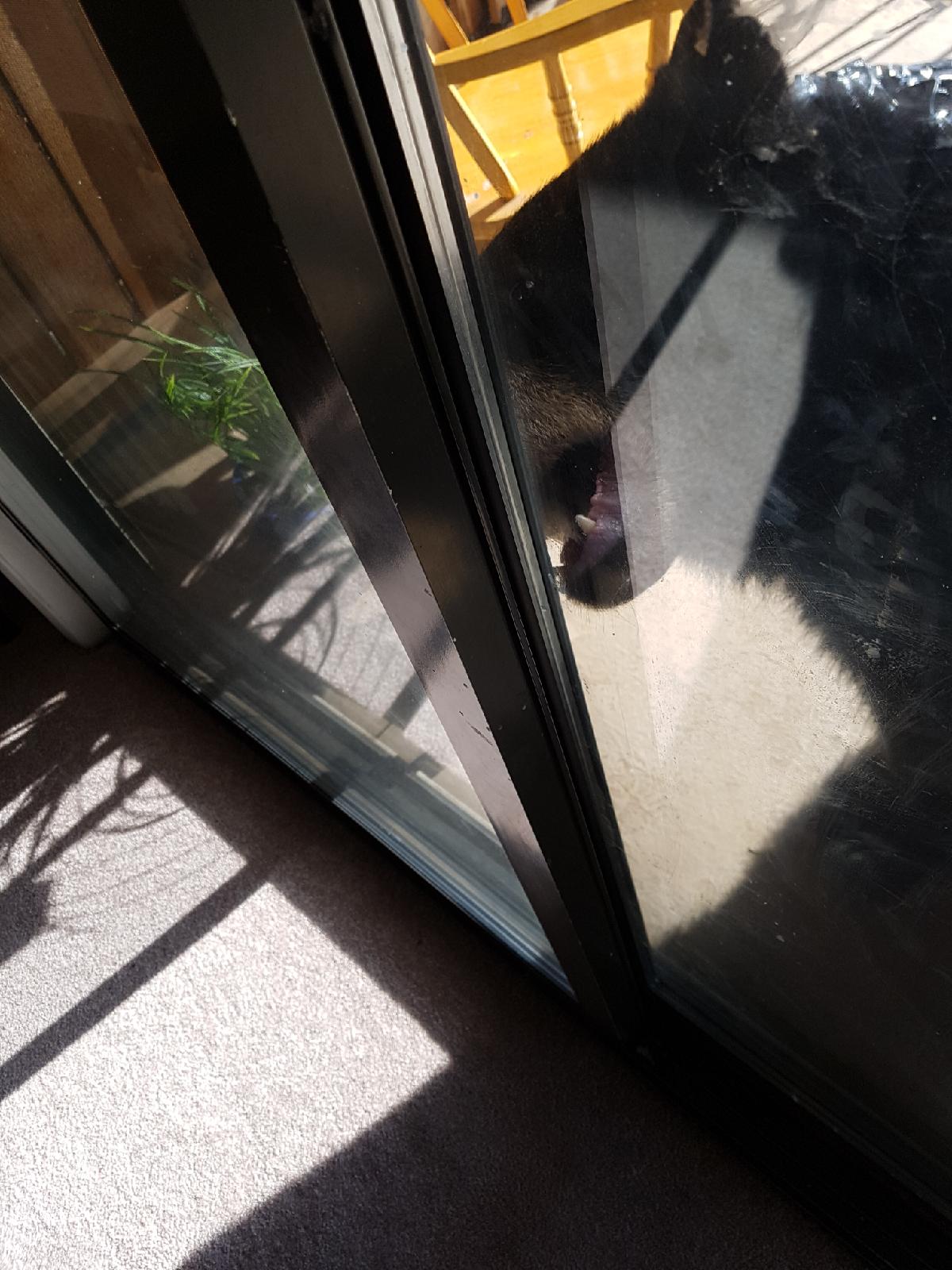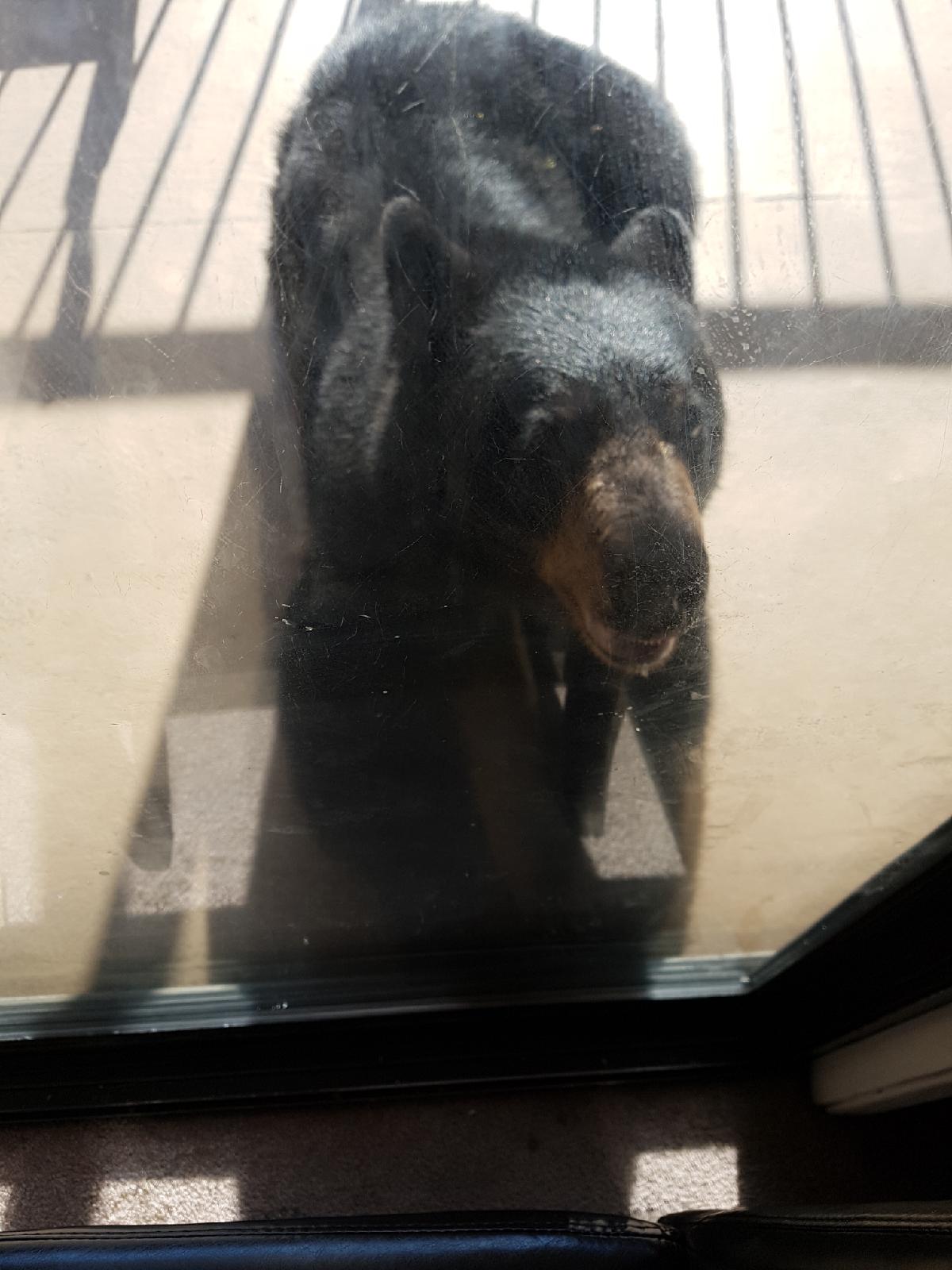A Guy Punched a Black Bear in the Face When It Tried to Break Into a House
Credit to Author: Lisa Cumming| Date: Fri, 25 Aug 2017 14:00:00 +0000
A few days ago, a mother from British Columbia found herself in a pretty hairy situation when a black bear came through a sliding glass door and into her home in the town of Gibsons.
The mom and her two kids locked themselves in a bedroom while the bear went around the house, “drooling all over her dining room table,” before a family friend managed to push the animal back out through the sliding doors and punched the bear in the nose, the Sunshine Coast Royal Canadian Mounted Police reported. The bear chewed on the door until police showed up.

As if BC doesn’t have enough of a problem with animals trailing humans.
Black bears and humans have been running into each other more and more in BC. The province has reportedly seen more than double the number of conflicts between humans and black bears, compared to 2016. In Burnaby, students have been asked to stay inside on their lunch breaks because of the worry about bears, CBC reported. If bears become fully habituated to humans, they’ll have to be killed. And many of these bear-human conflicts are preventable.
I asked Kyle Artelle, a biologist with Raincoast Conservation Foundation and a researcher at Simon Fraser University, about this bad bear behaviour. He said that what may have happened, in the case of the mom in Gibsons, is that this was a “food-conditioned” bear.
These animals have learned to associate humans with food, so they come into towns and backyards looking for something to eat. This can occur when people leave their garbage outside so it’s easy for bears to reach. It’s especially a problem when bears’ natural food sources are less available, driving them closer to humans and possibly sparking conflict.
“It makes being around humans more of an attraction,” said Artelle in a phone interview.
“Some years there’s a lot of bear-human conflict and some years there’s none at all,” he continued. “This is associated heavily with natural food availability.”
Read More: Extremely Angry Deer Are Terrorizing the People of Vancouver Island
Salmon is an important food source for black and grizzly bears on the BC coast. This year it’s looking concerning for salmon in BC, Artelle noted. The sockeye in Skeena River came back at an all-time low and Fraser River salmon stock returns have been low too.
Artelle has found that greater rates of conflict between bears and humans have occurred in years when less salmon is available. In a study published in 2016 in Scientific Reports, he and co-authors found that the annual number of grizzly bears in BC per kilometre squared that were killed due to conflicts with humans increased by an average of 20 percent, for every 50 percent decrease in annual salmon biomass.
“It could be a matter of bears, out of desperation, coming closer to human habitats,” Artelle said. “They’re willing to accept greater risks, which gets them into trouble.”
Still, that one particular bear in BC that made it into a family home is an unusual case. Artelle was quick to add that, when it comes to that animal, it’s impossible to say what exactly was going on: A bear following someone into their house is “very unnatural behaviour.”
“In certain years when there’s a lot of bear-human contact, a focus on protecting natural food could be helpful and that’s one that hasn’t necessarily been explored a lot,” he said. This means thinking about bears’ needs when planning salmon conservation efforts, for example.

Luckily, in the BC incident, no humans were seriously harmed. The black bear, unfortunately, wasn’t so lucky. The Sunshine Coast RCMP made the decision to put it down because of the displays of aggressive behaviour coupled with its lack of fear of humans.
“As we encroach more and more into areas where bears live the odds of encountering a bear increase,” he said. “If they’re losing natural food sources from us encroaching then they get desperate and try to replace lost food.”
Get six of our favorite Motherboard stories every day by signing up for our newsletter.